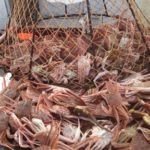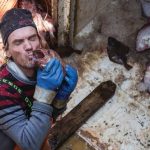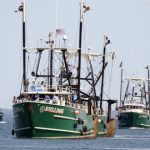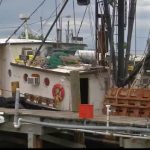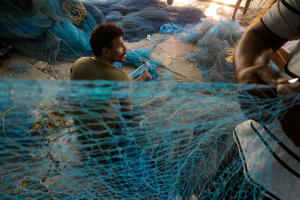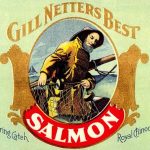Tag Archives: food production
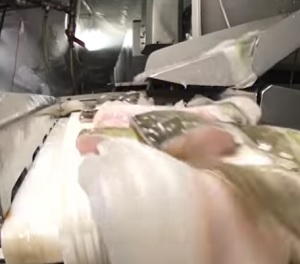
America’s Food Distribution Chain Is Essential
The disruptions in the food supply chains can be attributed to two primary causes – outbreaks of Coronavirus at some meat-processing and other food-packaging plants have led to closures across the country, and meanwhile, the sweeping closures of restaurants by state and local governments have disrupted the demand for a wide variety of food items. Over the past few days, fifteen percent of the pork processors have closed their doors. America’s fish supply provides a powerful example of what happens when states unilaterally shutter dine-in services at restaurants. The fishing industry knows something the central planners seem not to have known: Americans have a strong preference for eating fish in restaurants, rather than cooking it. >click to read<
Meat processing plants across the US are closing due to the pandemic. Will consumers feel the impact? – video, >click to read< 11:56
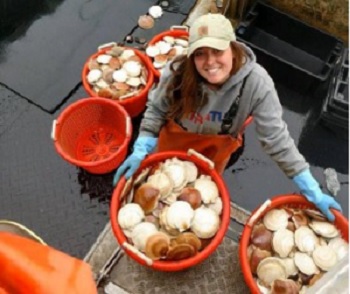
For NH’s food producers, Coronavirus sends a very mixed message
Across New Hampshire, the demand for local food is up, even as restaurants have closed or have tried to get by with takeout. The state’s small farmers are finding an unexpected benefit in the Covid-19 pandemic – there is an increased demand for their locally grown meats, vegetables, dairy, and other products.,, And for the Vernons and others, business is thriving. Demand for fish Kayla Cox, manager of New England Fishmongers, said the company’s business model for the past couple of years has been to sell directly to consumers – no wholesale. “What has changed drastically is that home delivery has completely blown up. It’s almost out of control,” Cox said. “We were doing 15 to 20 deliveries a week, and this past week we did 170. >click to read< 13:04
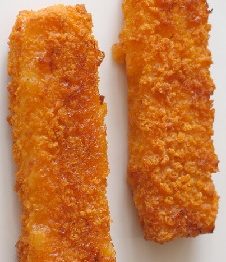
Fish sticks generate greenhouse gas emissions
Researchers have found that transforming ‘Alaskan pollock’ into fish sticks, imitation crab and fish fillets generates nearly twice the greenhouse gas emissions produced by fishing itself. Post-catch processing generates nearly twice the emissions produced by fishing itself, which is typically where the analysis of the climate impact of seafood ends, according to the findings, published in the journal Elementa: Science of the Anthropocene. >click to read< 15:29
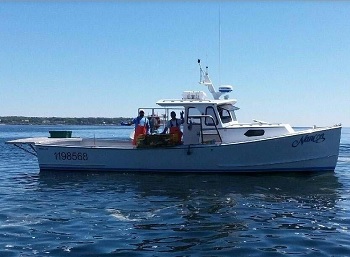
If you think lobster prices don’t affect you, think again
A recent social media post made by a local marketing firm sharing a photo of a shirt being sold in town that says “Make Lobster $1.97 lb. Again” stirred some controversy. Although it was intended to be a “joke,” it was no joking matter for many of us in the lobster industry. We remember all too well in the early 1990′s when lobsters were indeed this cheap, and how we were hurting. No one in dairy country would joke about milk being $1 a gallon, as most people are well aware of the struggles farmers face,,, Farmers feed our country – and so do American commercial fishermen.,, Right now, more than ever, Maine lobstermen need the public’s support. Maine lobster is well worth every penny paid for it. by Shelley Wigglesworth >click to read< 16:29
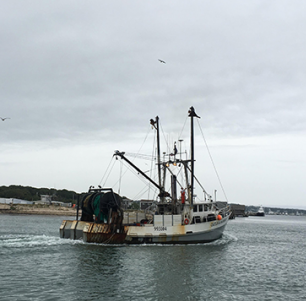
Carbon Emissions: Beef, Lamb, Lobster or Fish?
A new study by the University of Tasmania, Australia, and Canadian scientists has found that catching most types of fish produces far less carbon per kilogram of protein than land-based alternatives such as beef or lamb. The researchers found that fisheries for small pelagic species such as anchovies and sardines emit a fraction of the carbon generated by red meat production. On average, global fisheries have a low-carbon footprint similar to that of poultry. Lead author Dr Robert Parker, now at the University of British Colombia in Vancouver, said,, >click to read<16:01
From the PETA Playbook? – CEO works toward a ‘humane harvest’
 Kenny Down grew up in Ballard, and went to sea while still a teenager. Working for years aboard Bering Sea longliners, he never thought much about the stress that fish might go through as they were unhooked and then — while still conscious — cut open and bled. Now, the 52-year-old Down thinks about it a lot as chief executive of Blue North Fisheries, a Seattle-based company that on Monday will be launching a “humane harvest initiative” at the industry’s annual Seafood Expo in Boston. Read the rest here 14:56
Kenny Down grew up in Ballard, and went to sea while still a teenager. Working for years aboard Bering Sea longliners, he never thought much about the stress that fish might go through as they were unhooked and then — while still conscious — cut open and bled. Now, the 52-year-old Down thinks about it a lot as chief executive of Blue North Fisheries, a Seattle-based company that on Monday will be launching a “humane harvest initiative” at the industry’s annual Seafood Expo in Boston. Read the rest here 14:56





































